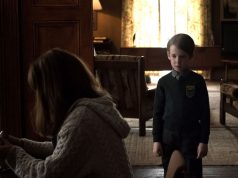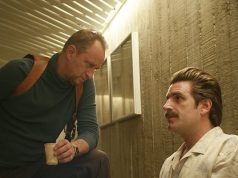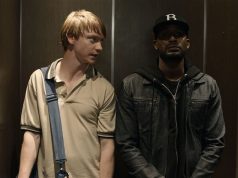On Feb. 18, 1943, Sophie Scholl and her brother Hans, students at Munich University, were arrested for distributing anti-Nazi propaganda on campus. Considering what the Nazis were doing at that time to people whose only crime was being Jewish, you can imagine how they treated people who actually broke the law. This was not an administration that responded well to criticism.
“Sophie Scholl: The Final Days” uses transcripts and testimonies to recreate those events, centering around Sophie’s interrogation by Nazi officials and her stay in a strangely hospitable German prison. One has a sinking feeling about how it’s going to turn out, but there is still suspense, and the intrigue in those interviews is strong.
Sophie (Julia Jentsch) and Hans (Fabian Hinrichs) are part of an underground resistance movement called the White Rose, responsible for printing fliers that decry the ongoing war. Their group believes German soldiers are dying needlessly, and that the only reasonable answer is for Hitler to surrender and end the war. That’s not to mention the atrocities being commit by the Germans against the civilians in lands they have conquered.
You can’t help but notice how some of these charges parallel the current mood in America — especially when Germans who oppose the war are said to be “giving terrorist aid to the enemy” — though whether “Sophie Scholl” director Marc Rothemund or writer Fred Breinersdorfer intended the similarities, I don’t know. It is enlightening to see a side of wartime Germany not often explored in film, though. Civilian Germans are usually depicted as wearily resigned to Nazism at best, supportive of Hitler at worst. Groups like the White Rose are usually underrepresented.
A significant chunk of the film is devoted to Sophie’s conversations with Robert Mohr (Gerald Alexander Held), an austere German official who interrogates over the course of several hours. The first time, she has plausible alibis that would remove her as a suspect in the distribution of the anti-Nazi flier. The second time, the tide has turned and Sophie is on the defensive.
Rothemund films these scenes like a tennis match: medium close-up of Mohr as he asks, medium close-up of Sophie as she answers, back and forth, rhythmically building to crescendos and then calming down again. It’s risky to include so much talking without plot advancement in a film, but it provides the heart and soul of “Sophie Scholl.”
Nominated for a Foreign Language Oscar this year (it lost to “Tsotsi”), the film has a serious, urgent tone, but not a preachy or strident one. Like most good movies on this subject, it puts human faces on the casualties of war and touchingly reminds us of the mistakes we mustn’t ever make again.
B (1 hr., 57 min.; German with subtitles; )





